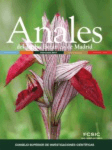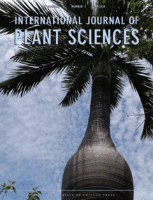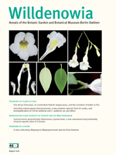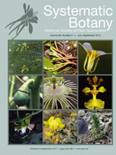
ANALES DEL JARDIN BOTANICO DE MADRID
Scope & Guideline
Bridging Research and Conservation in Plant Sciences
Introduction
Aims and Scopes
- Taxonomy and Nomenclature:
The journal places significant emphasis on the classification and naming of plant species, contributing to the understanding of biodiversity and ensuring accurate identification of flora. - Phylogenetics and Evolution:
Research published in this journal often explores the evolutionary relationships among plant species, utilizing modern genetic and genomic techniques to unravel phylogenetic trees. - Ecological Studies:
The journal addresses ecological aspects of plant life, including studies on habitat preferences, species interactions, and the impact of environmental changes on plant communities. - Conservation and Endemism:
A core focus is on the conservation status of plant species and their habitats, especially in biodiversity hotspots and areas with high endemism. - Ethnobotany and Traditional Uses:
The journal also investigates the relationship between humans and plants, documenting traditional uses of flora, particularly in medicinal contexts. - Diversity and Floristics:
It provides comprehensive checklists and floristic analyses, enhancing knowledge about plant diversity in specific regions.
Trending and Emerging
- Climate Change Impact on Flora:
Recent publications highlight the impacts of climate change on plant habitats and biodiversity, reflecting a growing concern for ecological consequences in the face of global warming. - Molecular Phylogenetics:
There is a notable increase in studies utilizing molecular techniques for phylogenetic analysis, indicating a shift towards more sophisticated and precise methods of understanding plant evolution. - Plant Conservation Strategies:
Research focusing on conservation strategies and the assessment of threatened species is on the rise, emphasizing the journal's commitment to biodiversity preservation. - Invasive Species and Ecological Interactions:
The investigation of non-native species and their ecological impacts within local environments is becoming a prominent theme, reflecting global ecological challenges. - Diversity and Endemism Studies in Specific Regions:
There’s an increasing trend in comprehensive diversity studies in specific geographical areas, particularly in biodiversity hotspots, enhancing the understanding of regional flora.
Declining or Waning
- Traditional Medicinal Plants:
Research focusing on the traditional uses of medicinal plants, while still relevant, has seen a reduction in the number of publications compared to emerging ecological and phylogenetic studies. - Historical Botanical Expeditions:
While historical botanical collections and expeditions provided valuable insights into plant diversity, there has been a noticeable decrease in studies centered on these historical aspects. - Morphological Studies:
Although morphology remains fundamental in taxonomy, there appears to be a decline in purely morphological studies in favor of molecular and genetic approaches. - Local Flora Studies:
Specific studies on local flora without a broader ecological or conservation context are becoming less common as the journal shifts towards more integrative research themes.
Similar Journals

Hacquetia
Cultivating Understanding in Ecology and SystematicsHacquetia is an esteemed open-access journal dedicated to the interdisciplinary exploration of ecology, evolution, behavior, systematics, forestry, and plant science. Published by SCIENTO since 2007, this journal has established itself as a pivotal platform for researchers and academics looking to disseminate their findings in these critical fields. Nestled in the heart of Warsaw, Poland, Hacquetia offers unrestricted access to its content, promoting knowledge sharing among professionals, students, and enthusiasts alike. The journal, while ranked in the Q4 category across its relevant disciplines in 2023, serves as a valuable resource for those seeking to contribute to and engage with contemporary ecological and botanical research. Its commitment to open access ensures that cutting-edge research is available to a global audience, fostering innovation and collaboration in the scientific community.

INTERNATIONAL JOURNAL OF PLANT SCIENCES
Connecting researchers with groundbreaking plant studies.The INTERNATIONAL JOURNAL OF PLANT SCIENCES, published by UNIV CHICAGO PRESS, is a leading journal dedicated to advancing knowledge in the fields of plant sciences and ecology. With an ISSN of 1058-5893 and an E-ISSN of 1537-5315, this journal has been a prominent platform for groundbreaking research since its establishment, featuring works from 1983 to present. It holds an impressive Q2 ranking in both Ecology, Evolution, Behavior and Systematics and Plant Science, reflecting its reputable standing within the academic community. The journal is well-regarded for its rigorous peer-review process and commitment to high-quality publication standards, making it a favored choice for researchers, students, and professionals eager to engage with the latest findings and innovative methodologies in plant research. While it does not currently operate under an Open Access model, the journal provides ample access options for institutions and individuals keen to explore its curated content. By presenting diverse studies that blend theoretical and practical insights, the INTERNATIONAL JOURNAL OF PLANT SCIENCES plays a critical role in fostering interdisciplinary dialogue and advancing the frontiers of plant science research.

CONTRIBUTIONS TO ZOOLOGY
Fostering Collaboration in the World of ZoologyCONTRIBUTIONS TO ZOOLOGY, published by BRILL, is a premier scholarly journal dedicated to advancing the field of zoological sciences. With an ISSN of 1383-4517 and an E-ISSN of 1875-9866, this journal serves as a vital platform for researchers, professionals, and students seeking to share their findings and insights related to animal science, ecology, evolution, and systematics. Recognized for its high academic standards, it ranks in the top quartile (Q1) for Animal Science and Zoology, and Q2 for Ecology, Evolution, Behavior, and Systematics, reflecting its significance and influence in the scholarly community. The journal has been consistently published since 1994 and continues to contribute pivotal knowledge that informs and shapes contemporary zoological research. Researchers can access the journal through traditional subscription models, ensuring broad dissemination of its impactful articles and studies. Contributions to Zoology plays an essential role in fostering collaboration and discussion within the zoological community in the Netherlands and beyond.

Willdenowia
Unlocking the secrets of plant evolution and behavior.Willdenowia is a prestigious scientific journal published by the Botanischer Garten & Botanische Museum Berlin-Dahlem, dedicated to advancing the field of botany and plant sciences. With an ISSN of 0511-9618, this journal has established itself as a crucial platform for researchers, practitioners, and students interested in ecology, evolution, behavior, systematics, and plant science. The journal boasts an impactful reputation, evidenced by its impressive Q1 and Q2 quartile rankings in Plant Science and Ecology, Evolution, Behavior and Systematics respectively, as well as notable Scopus rankings, placing it within the top quartiles of its categories. Although access is not open, articles published in Willdenowia contribute significantly to the global body of botanical research, making it an essential resource for anyone looking to deepen their understanding of plant biology and related ecological disciplines. The journal has continuously evolved since its inception and aims to facilitate interdisciplinary collaboration and knowledge dissemination in the life sciences.

NOVA HEDWIGIA
Exploring Nature's Complexities, One Study at a TimeNOVA HEDWIGIA is a premier journal dedicated to the fields of ecology, evolution, behavior, and systematics, as well as plant sciences. Published by GEBRUDER BORNTRAEGER in Germany, this journal serves as a vital platform for researchers, professionals, and students seeking to disseminate and engage with high-quality studies and findings. With an ISSN of 0029-5035 and an E-ISSN of 2363-7188, NOVA HEDWIGIA has established its significance within these disciplines, reflected in its current Scopus rankings, which place it in the third quartile of both ecology and plant science categories. This esteemed publication has contributed to the advancement of knowledge and innovation since its inception in 1993, continuing through 2024, offering valuable resources for an ever-evolving academic landscape. Researchers looking to contribute to ecological studies or plant sciences will find NOVA HEDWIGIA an ideal venue for sharing their work, nurturing their academic pursuits, and joining a community passionate about the natural sciences.

Botanical Sciences
Exploring the wonders of botany, one article at a time.Botanical Sciences, published by SOC BOTANICA MEXICO, is a pioneering open access journal dedicated to advancing the field of plant science. Established in 2012, it has rapidly become an essential resource for researchers and professionals interested in the diverse aspects of botany, including plant biology, ecology, and conservation. With an ISSN of 2007-4298 and an E-ISSN of 2007-4476, the journal operates under a vision to foster the exchange of knowledge and innovations among scientists globally. Recognized in the Q3 quartile for plant science in 2023 and ranking at #304 out of 516 in the Scopus category for Agricultural and Biological Sciences, Botanical Sciences is strategically positioned to widen its reach and impact. The journal's commitment to open access ensures that research findings are freely available to an international audience, providing invaluable insights and fostering collaboration within the botanical sciences community. The editorial board comprises leading experts who are dedicated to maintaining high-quality peer review processes to uphold the standards expected by the academic community.

Mediterranean Botany
Illuminating the Path of Ecological Research in the MediterraneanMediterranean Botany is a distinguished peer-reviewed journal dedicated to the flourishing fields of Ecology, Plant Science, and Ecology, Evolution, Behavior and Systematics. Published by the Universidad Complutense de Madrid, Servicio Publicaciones, this Open Access journal has been disseminating valuable research since 2018, ensuring that findings are accessible to a global audience, with an emphasis on Mediterranean vegetation and biodiversity. With an ISSN of 2603-9109, it contributes significantly to the academic discourse in its category quartiles, recently featuring in Q3 for Ecology and related fields. Notably, Mediterranean Botany ranks within the top half of its category in Scopus, highlighting its relevance and contribution to the scientific community. Researchers, professionals, and students alike will find the journal to be a vital resource for latest discoveries, trends, and conservation strategies in Mediterranean ecosystems, positioning it as an essential platform for advancing knowledge and fostering collaboration within the plant sciences.

NORDIC JOURNAL OF BOTANY
Advancing Plant Science and Ecology in the Nordic RealmNORDIC JOURNAL OF BOTANY, published by WILEY, is a distinguished journal that serves as a vital platform for the dissemination of innovative research in the fields of Plant Science and Ecology, Evolution, Behavior and Systematics. With an ISSN of 0107-055X and E-ISSN 1756-1051, this journal has been a crucial part of the academic landscape since its inception in 1981, continuing to contribute significantly to the literature up to 2024. NORDIC JOURNAL OF BOTANY holds a commendable Q2 ranking in Plant Science and Q3 in Ecology, which underscores its impact and relevance in the scientific community. Despite the absence of Open Access options, the journal offers robust access features that ensure researchers and readers can easily engage with its meticulously curated content. Aimed at both seasoned professionals and emerging scholars, the journal not only publishes high-quality articles but also fosters collaboration and knowledge exchange across various related disciplines, thereby solidifying its role as a cornerstone in botanical and ecological research.

Acta Botanica Mexicana
Bridging science and sustainability through plant research.Acta Botanica Mexicana is a premier journal published by Instituto de Ecología AC, dedicated to advancing research in the fields of ecology, plant science, and biological sciences. With an E-ISSN of 2448-7589, this open-access journal facilitates extensive dissemination of scientific findings, ensuring that knowledge is accessible to researchers, professionals, and students worldwide. Established in 2008, Acta Botanica Mexicana has earned a notable reputation, achieving a Q3 ranking in plant science and a Q4 ranking in ecology and evolution for 2023. This positioning underscores its commitment to publishing high-quality research that addresses vital issues in ecological and botanical studies. With a focus on innovative methodologies and pragmatic solutions, the journal invites contributors to share their insights and findings, thus enriching the academic landscape and fostering collaborations that drive the field forward. The journal is based in Michoacán, Mexico, and serves as a key hub for researchers engaging with the challenges and intricacies of plant and ecological studies.

SYSTEMATIC BOTANY
Unveiling the Mysteries of Plant EvolutionSystematic Botany, published by the American Society of Plant Taxonomists, is an esteemed journal focusing on the diverse fields of plant taxonomy, systematics, and evolution. With an ISSN of 0363-6445 and an E-ISSN of 1548-2324, this journal serves as a critical platform for researchers aiming to advance our understanding of plant biodiversity and evolutionary relationships. Operating since 1994, Systematic Botany has garnered significant recognition, achieving a Q2 ranking in Ecology, Evolution, Behavior and Systematics, and Plant Science categories, and ranking within the top half of Scopus for Genetics. The journal prioritizes publishing high-quality, peer-reviewed research, making it an essential resource for academics, practitioners, and students alike. Although it does not provide open access options, the journal's robust reputation in both American and international botanical research speaks to its pivotal role in disseminating vital scientific knowledge in the field. For those interested in the latest advancements in plant science, Systematic Botany is indispensable.